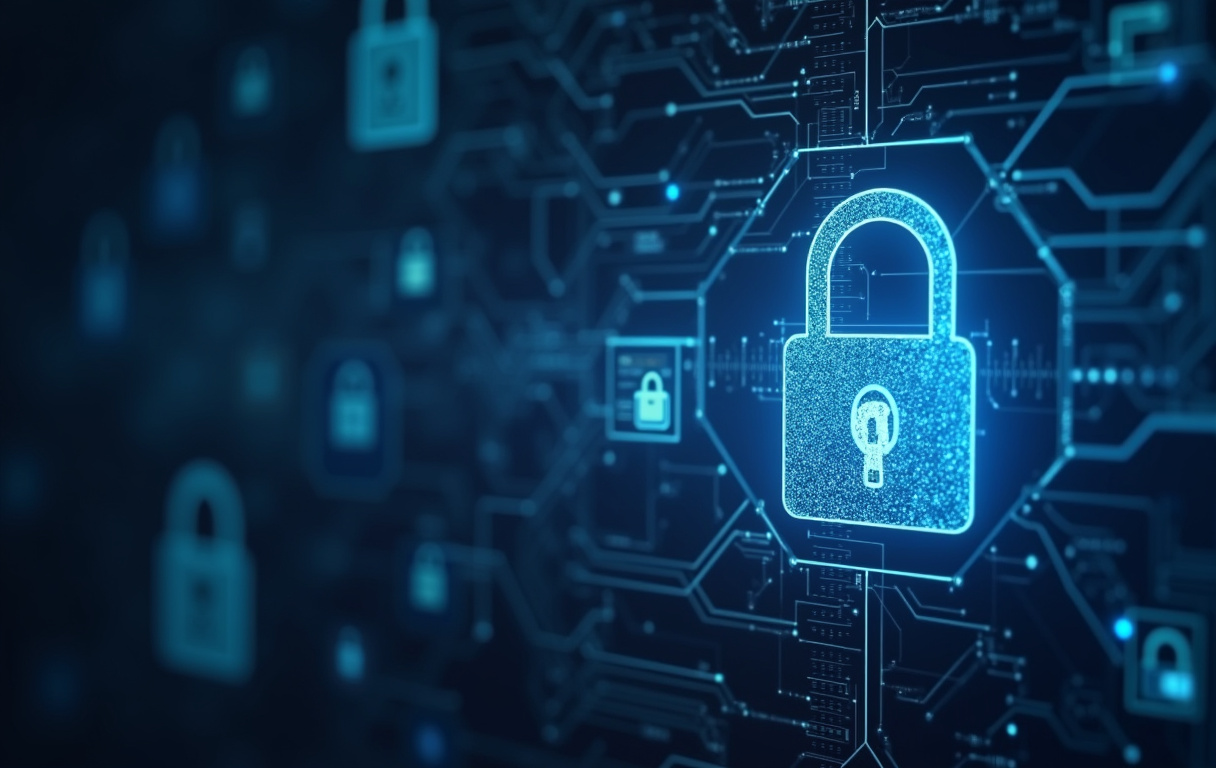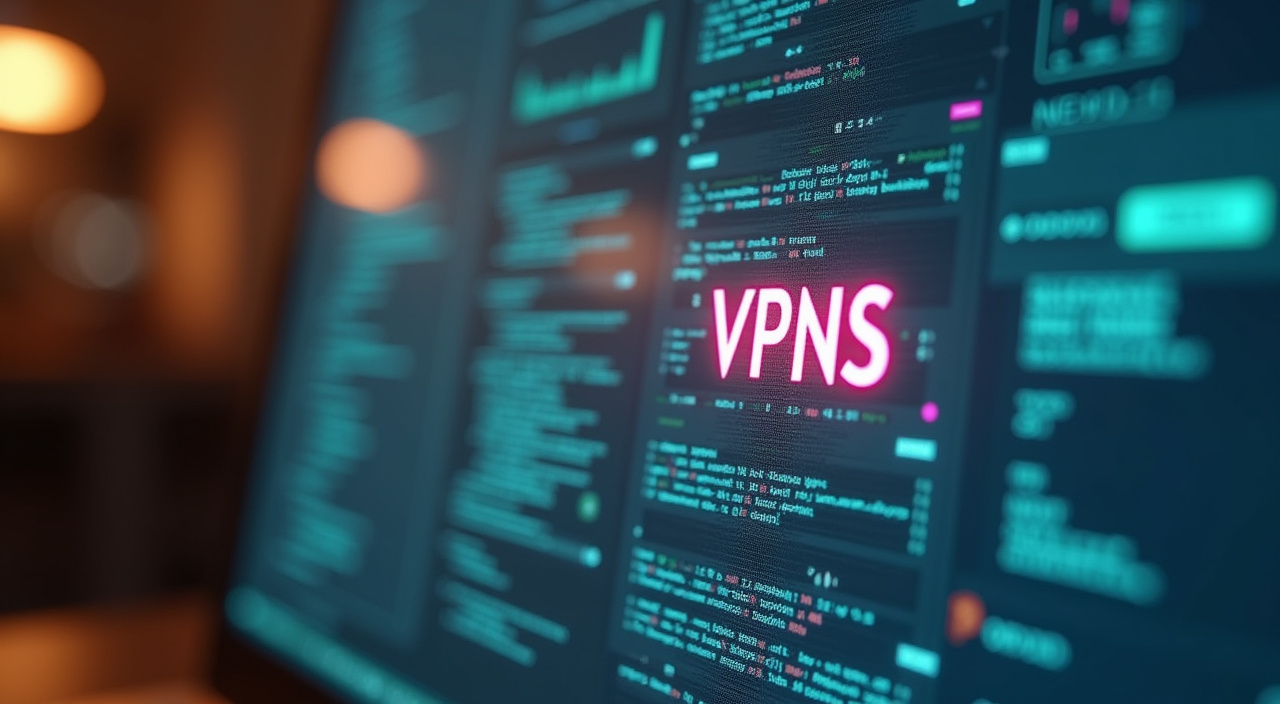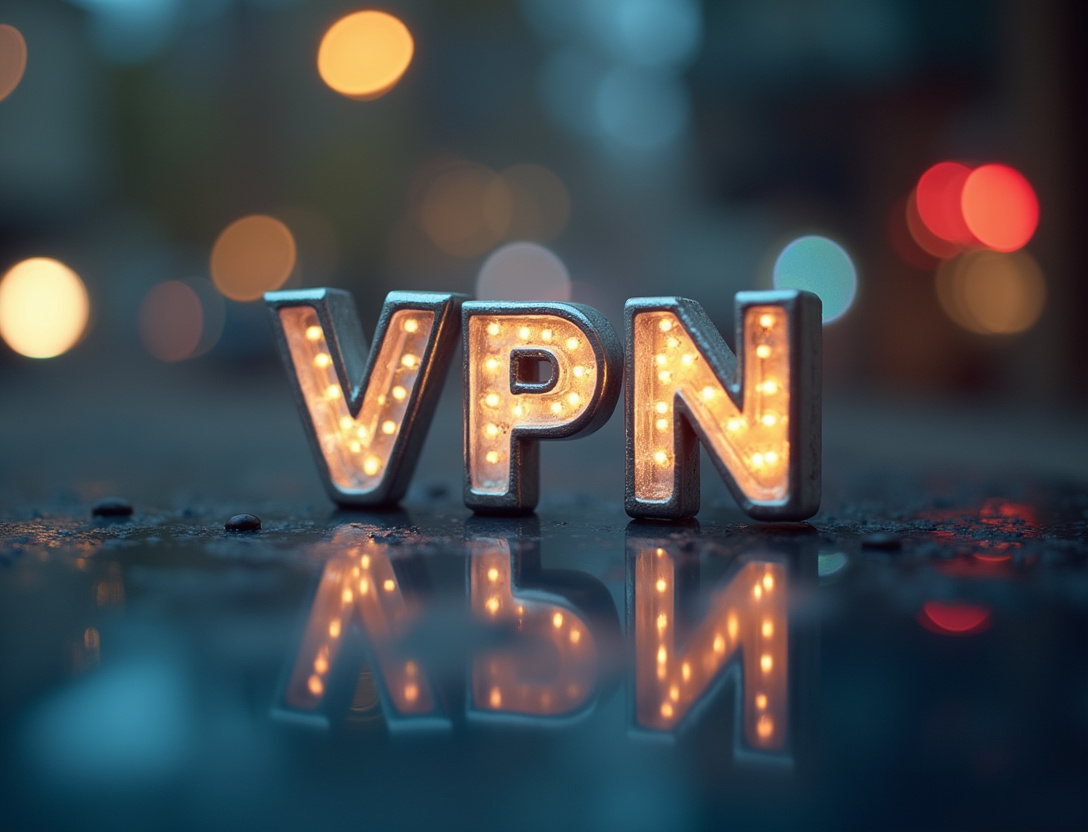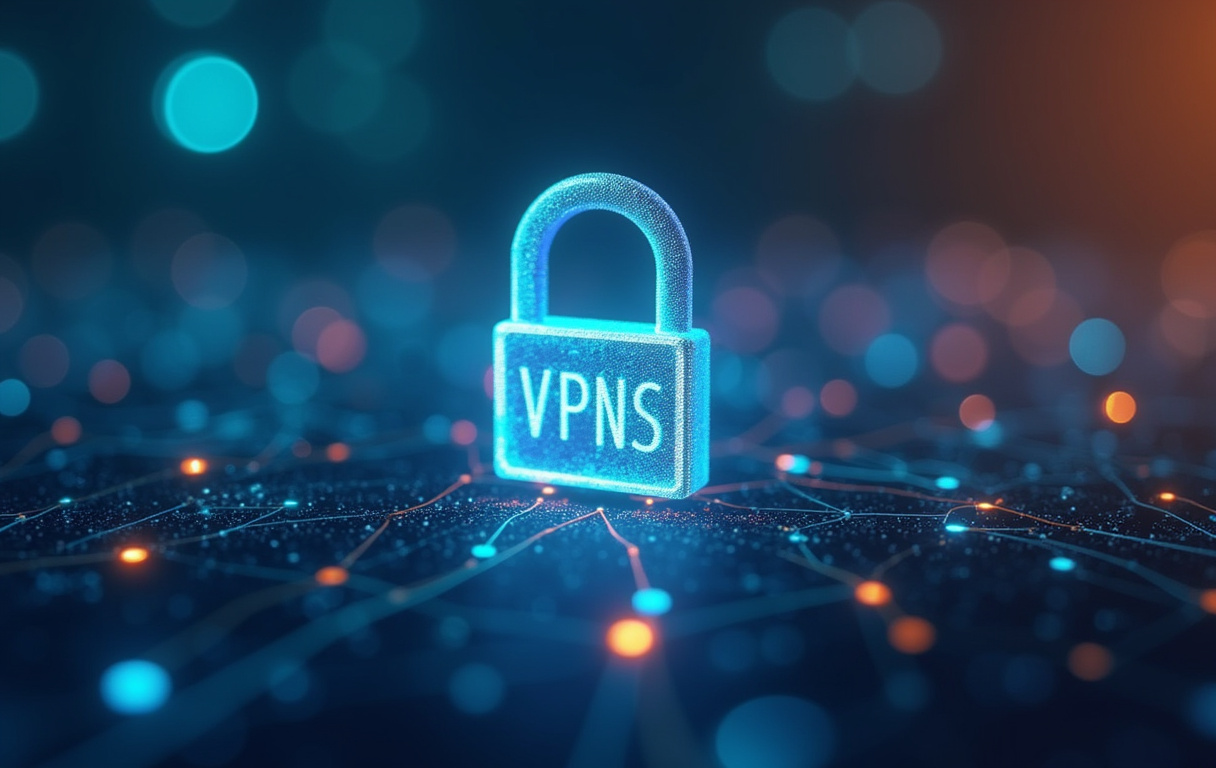VPNs for Freelancers: Simplifying Remote Work Security
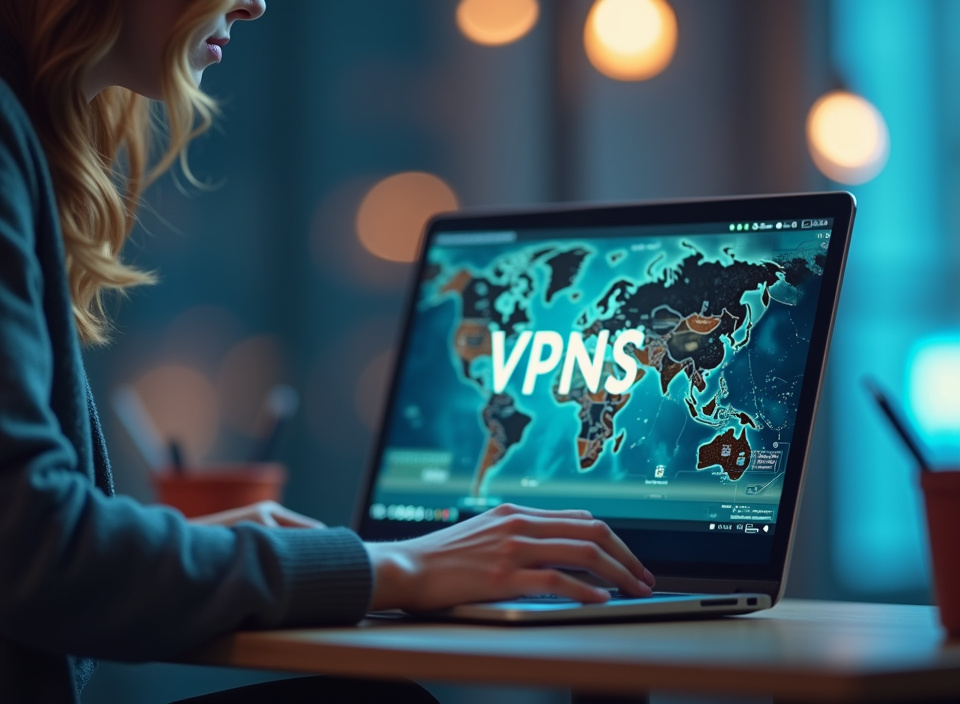
Table of Contents
freelancer VPN
In today's increasingly digital landscape, the freelance economy is booming. More individuals than ever are choosing the flexibility and autonomy of working remotely, offering their skills to clients across the globe. However, this newfound freedom comes with its own set of challenges, particularly concerning security.
Freelancers, often operating outside the traditional corporate infrastructure, face unique vulnerabilities that can compromise their own data, their clients' sensitive information, and their professional reputation. This is where a Virtual Private Network (VPN) steps in as an essential tool, providing a crucial layer of protection and enabling freelancers to navigate the digital world with greater confidence. A isn't just a nice-to-have; it's a necessity for maintaining and ensuring the confidentiality, integrity, and availability of your online activities.
The interconnected nature of the internet means that every time you connect to a public Wi-Fi network at a coffee shop, co-working space, or airport, you're potentially exposing your data to malicious actors. Hackers often lurk on these unsecured networks, seeking to intercept unencrypted traffic and steal valuable information like passwords, financial data, and client project files. A VPN acts as a secure tunnel, encrypting your internet traffic and masking your IP address, effectively shielding your online activity from prying eyes.
This encryption makes it virtually impossible for hackers to decipher your data even if they manage to intercept it. The benefits extend beyond public Wi-Fi. Even your home network, while seemingly secure, can be vulnerable to cyber threats.
A VPN adds an extra layer of protection against potential malware infections, phishing scams, and other online attacks that could compromise your system and data. It's like having a personal bodyguard for your internet connection, constantly monitoring and protecting your digital assets. For freelancers dealing with confidential client data, the stakes are even higher.
Leaked or compromised information can lead to severe consequences, including legal repercussions, reputational damage, and loss of business. A VPN offers a critical layer of by ensuring that all data transmitted between you and your clients is encrypted and secure. Whether you're exchanging sensitive documents, collaborating on projects, or conducting video conferences, a VPN keeps your communications private and protected from unauthorized access.
This is not just about security; it’s about building trust with your clients and demonstrating your commitment to safeguarding their confidential information. Furthermore, a VPN can help you overcome geographical restrictions and access resources that might otherwise be unavailable in your location. Some clients may restrict access to certain services or websites based on your IP address.
With a VPN, you can connect to servers in different countries and bypass these restrictions, allowing you to work seamlessly and efficiently. This can be particularly useful for freelancers who work with international clients or need to access location-specific resources for their projects. Think of a graphic designer needing access to a specific font library only available in a certain region, or a writer researching local news from a different country.
A VPN allows them to appear as if they're browsing from that region, unlocking these valuable resources. Similarly, freelancers traveling abroad can use a VPN to access their home country's streaming services or banking websites, which might otherwise be blocked due to geographical restrictions. This ensures they can stay connected to important services and maintain business continuity while on the move.
In essence, a VPN empowers freelancers to take control of their online security and protect their digital assets. By encrypting your traffic, masking your IP address, and providing access to geographically restricted content, a VPN helps you navigate the complexities of the digital world with greater confidence and peace of mind, ensuring that you can focus on delivering your best work without worrying about security risks. It truly is the cornerstone of any infrastructure, allowing you to maintain consistent security protocols regardless of your physical location.
By implementing this essential safeguard, freelancers can not only secure their own data but also demonstrate a commitment to the security and confidentiality of their clients, building trust and fostering long-term professional relationships. The peace of mind that comes with knowing your online activity is protected is invaluable, allowing you to focus on your craft and grow your freelance business without the constant worry of potential security breaches.
communication security
Finding the right VPN for your freelance business involves carefully considering your specific needs and priorities. Not all VPNs are created equal, and the features and services offered can vary significantly. One of the most important factors to consider is the encryption protocol used by the VPN.
Look for VPNs that utilize strong encryption protocols such as AES-256, which is considered the industry standard for securing sensitive data. This level of encryption ensures that your data is virtually impenetrable to unauthorized access. Older or weaker encryption methods are simply not sufficient in today's threat landscape, and choosing a VPN with robust encryption is paramount for protecting your valuable data.
The strength of the encryption is directly proportional to the difficulty a malicious actor would face in attempting to decrypt and access your information. Beyond encryption, the VPN's server network is also crucial. A large and diverse server network allows you to connect to servers in different locations around the world, bypassing geographical restrictions and improving your connection speed.
A wider server selection provides greater flexibility and ensures that you can always find a server that meets your specific needs. For example, if you need to access a website hosted in Europe, you can connect to a European server to optimize your connection speed and avoid potential latency issues. Similarly, a larger server network reduces the likelihood of server congestion, which can lead to slower speeds and unreliable connections.
A VPN with a limited number of servers can quickly become overloaded, especially during peak hours, resulting in a frustrating user experience. Speed is another critical factor, especially for freelancers who rely on stable and fast internet connections for their work. Some VPNs can significantly slow down your internet speed due to the encryption process.
Look for VPNs that are optimized for speed and offer fast server connections in your region. Many VPN providers offer speed tests or trial periods, allowing you to evaluate their performance before committing to a subscription. It's important to note that VPN speeds can vary depending on your location, internet connection, and the distance to the VPN server.
Experiment with different server locations to find the ones that offer the best performance for your needs. Privacy is paramount when choosing a VPN. Read the VPN provider's privacy policy carefully to understand how they collect, use, and store your data.
Look for VPNs that have a strict no-logs policy, meaning they don't track or store your browsing history, IP address, or other personally identifiable information. A no-logs policy ensures that your online activity remains private and confidential. Some VPN providers claim to have a no-logs policy but may still collect some metadata, such as connection timestamps or bandwidth usage.
Choose a VPN provider that is transparent about their data collection practices and has a proven track record of protecting user privacy. Look for independent audits of their no-logs policy to verify their claims. Security features are also essential.
Look for VPNs that offer features such as a kill switch, which automatically disconnects your internet connection if the VPN connection drops, preventing your data from being exposed. Additional security features, such as DNS leak protection and malware blocking, can further enhance your online security. A kill switch is a critical safety net that ensures your data remains protected even if the VPN connection unexpectedly fails.
DNS leak protection prevents your DNS requests from being exposed to your ISP, further enhancing your privacy. Malware blocking can help protect you from malicious websites and files, adding an extra layer of security to your browsing experience. Ease of use is another important consideration, especially for freelancers who are not tech-savvy.
Choose a VPN that has a user-friendly interface and is easy to set up and use on all your devices. Many VPN providers offer apps for various operating systems, making it easy to connect to the VPN on your computer, smartphone, or tablet. A complicated or confusing interface can be a barrier to adoption, and you're more likely to use a VPN that is simple and intuitive to use.
Cost is always a factor. VPN prices can vary significantly depending on the features and subscription length. Consider your budget and choose a VPN that offers the best value for your money.
Many VPN providers offer discounts for long-term subscriptions. However, don't solely base your decision on price. A cheaper VPN may not offer the same level of security, privacy, or performance as a more expensive option.
Ultimately, the best VPN for your freelance business is one that meets your specific needs and priorities in terms of security, speed, privacy, ease of use, and cost. Research different VPN providers, read reviews, and take advantage of trial periods to find the perfect fit. By carefully evaluating your options, you can choose a VPN that provides the essential protection you need to thrive in the remote work environment while bolstering .
Compare the different features offered by various VPNs, such as simultaneous connections, dedicated IP addresses, and specialized servers for streaming or torrenting. Take the time to find a VPN that aligns with your specific usage patterns and security requirements.
communication security
A well-configured VPN enhances for freelancers by providing a secure and encrypted channel for all online communications, regardless of the platform or application used. This is particularly crucial for freelancers who frequently communicate with clients via email, instant messaging, video conferencing, or file sharing services. Without a VPN, these communications are vulnerable to interception and eavesdropping, potentially exposing sensitive information to unauthorized parties.
A VPN acts as a shield, encrypting all data transmitted between your device and the VPN server, making it nearly impossible for hackers or other malicious actors to decipher the content of your communications. This encryption extends to all types of data, including text messages, emails, voice calls, and video streams, ensuring that your communications remain private and confidential. Email security is a major concern for freelancers, as email is often used to exchange sensitive information such as contracts, financial details, and client project files.
A VPN encrypts your email traffic, protecting your email communications from being intercepted and read by hackers. This is especially important when using public Wi-Fi networks, which are notoriously insecure and vulnerable to eavesdropping. In addition to encrypting your email traffic, a VPN can also help protect you from phishing scams and other email-borne threats.
By masking your IP address and routing your traffic through a secure server, a VPN makes it more difficult for hackers to track your location and target you with personalized phishing attacks. Furthermore, some VPNs offer built-in malware blocking features that can scan incoming emails for malicious attachments and prevent you from accidentally downloading harmful files. Instant messaging is another popular communication tool for freelancers, allowing for real-time collaboration and quick communication with clients.
However, many instant messaging platforms lack end-to-end encryption, making them vulnerable to interception. A VPN encrypts your instant messaging traffic, protecting your conversations from being read by unauthorized parties. This is particularly important when discussing confidential project details or sharing sensitive information with clients.
Choose instant messaging platforms that offer end-to-end encryption as an additional layer of security. Combined with a VPN, this provides a robust defense against eavesdropping and ensures the privacy of your conversations. Video conferencing has become an essential tool for freelancers, allowing for face-to-face meetings with clients from anywhere in the world.
However, video conferencing platforms can be vulnerable to security breaches, as demonstrated by several high-profile incidents in recent years. A VPN encrypts your video conferencing traffic, protecting your meetings from being intercepted and eavesdropped upon. This is especially important when discussing confidential business strategies or sharing sensitive information with clients.
Ensure that both you and your clients are using strong passwords and enabling two-factor authentication for your video conferencing accounts to further enhance security. A VPN provides an additional layer of protection, but strong account security practices are also crucial. File sharing services are often used by freelancers to exchange large files with clients, such as project deliverables, design assets, and marketing materials.
However, many file sharing services lack adequate security measures, making them vulnerable to data breaches. A VPN encrypts your file sharing traffic, protecting your files from being intercepted and accessed by unauthorized parties. This is especially important when sharing confidential client data.
Consider using file sharing services that offer end-to-end encryption, which ensures that your files are encrypted both in transit and at rest. Combined with a VPN, this provides a comprehensive security solution for file sharing. Beyond these specific communication channels, a VPN protects all of your online activity, ensuring that your browsing history, search queries, and other sensitive information remain private and confidential.
This is particularly important for freelancers who work on sensitive projects or need to maintain a high level of anonymity. Using a VPN consistently across all of your devices ensures that you are always protected, regardless of where you are working or what you are doing online. In summary, a well-configured VPN is an indispensable tool for freelancers who want to enhance their and protect their sensitive information.
By encrypting all of your online communications and masking your IP address, a VPN provides a robust defense against eavesdropping, data breaches, and other online threats, allowing you to communicate with your clients with confidence and peace of mind. Remember to choose a VPN provider with a strong reputation for security and privacy, and to configure your VPN settings to maximize your protection. With a little effort and careful planning, you can significantly improve your online security and safeguard your freelance business from cyber threats.
This level of protection is invaluable for maintaining and building trust with your business partners.
remote work security
Implementing a VPN as part of your overall security strategy is a critical first step, but it's equally important to understand how to use it effectively and integrate it with other security measures to create a robust defense against cyber threats. Simply installing a VPN application is not enough; you need to understand how to configure it properly and use it consistently to maximize its benefits. One of the first things you should do is configure your VPN to automatically connect whenever you start your computer or mobile device.
This ensures that your internet traffic is always encrypted, even before you launch your browser or any other applications. Most VPN applications offer this feature in their settings menu. Enable it to ensure consistent protection.
Furthermore, take advantage of the VPN's server selection feature to choose a server that is geographically close to your location. This can often improve your connection speed and reduce latency. While connecting to a server in a different country can be useful for bypassing geographical restrictions, it can also slow down your internet speed.
Experiment with different server locations to find the one that offers the best balance of speed and security for your needs. It's also important to understand the limitations of a VPN. While a VPN can encrypt your internet traffic and mask your IP address, it cannot protect you from all online threats.
For example, a VPN cannot protect you from phishing scams, malware infections, or weak passwords. Therefore, it's essential to implement other security measures in addition to using a VPN. Use strong and unique passwords for all of your online accounts.
A password manager can help you create and store strong passwords securely. Enable two-factor authentication whenever possible to add an extra layer of protection to your accounts. Be wary of suspicious emails and websites, and never click on links or download attachments from untrusted sources.
Install and maintain a reputable antivirus program on your computer to protect against malware infections. Keep your software up to date, as software updates often include security patches that fix vulnerabilities. Integrating your VPN with other security tools can create a synergistic effect, enhancing your overall security posture.
For example, using a VPN in conjunction with a secure browser extension can provide an extra layer of protection against tracking and malware. There are many browser extensions available that can block ads, trackers, and other malicious content. Some VPN providers even offer their own browser extensions that integrate seamlessly with their VPN applications.
Consider using a firewall to further protect your network from unauthorized access. A firewall acts as a barrier between your computer and the internet, blocking suspicious traffic and preventing unauthorized access to your system. Most operating systems include a built-in firewall, but you can also purchase third-party firewall software for greater control and customization.
Educate yourself about common cyber threats and learn how to identify and avoid them. Phishing scams, malware infections, and social engineering attacks are constantly evolving, so it's important to stay informed about the latest threats and how to protect yourself. Consider investing in a comprehensive security suite that includes a VPN, antivirus software, a password manager, and other security tools.
These suites often offer a discounted price compared to purchasing each tool separately and can provide a unified and easy-to-use security solution. Regularly review your security practices and make adjustments as needed. Your security needs may change over time, so it's important to reassess your security posture periodically and make any necessary adjustments.
For example, if you start working on more sensitive projects, you may need to invest in additional security measures, such as data loss prevention (DLP) software or encryption tools. Furthermore, remember that your employees or subcontractors also represent a potential security risk. If you have employees or subcontractors who access your network or client data, make sure they are also using a VPN and have implemented appropriate security measures.
Provide them with security training and educate them about common cyber threats. By taking a holistic approach to security and integrating your VPN with other security measures, you can create a robust defense against cyber threats and protect your freelance business from data breaches, financial losses, and reputational damage. Focusing on requires a multi-faceted approach, and a properly implemented VPN is a cornerstone of that strategy.
Ensuring mandates that you not only secure your own systems, but those of anyone who accesses client data.
freelancer VPN
The freelance landscape is constantly evolving, and with it, the threats to your online security. Staying ahead of these threats requires continuous learning, adaptation, and proactive measures. It's not enough to simply set up a VPN and forget about it.
You need to be vigilant, stay informed about the latest security vulnerabilities, and adapt your security practices accordingly. One of the most effective ways to stay informed is to subscribe to security newsletters and blogs. These resources provide valuable insights into the latest cyber threats, security best practices, and emerging technologies.
Follow security experts on social media and attend webinars and conferences to learn from their expertise. Building a strong security culture within your freelance business is also crucial. This means fostering a mindset of security awareness among yourself and any employees or subcontractors you may have.
Encourage everyone to be vigilant about potential threats and to report any suspicious activity immediately. Implement a clear security policy that outlines acceptable use of technology, password requirements, data handling procedures, and incident response protocols. Make sure everyone understands the policy and their responsibilities for maintaining security.
Regularly test your security defenses to identify any weaknesses or vulnerabilities. This can involve conducting penetration testing, vulnerability scanning, and security audits. Penetration testing involves simulating a real-world attack to identify weaknesses in your security defenses.
Vulnerability scanning involves using automated tools to scan your systems for known vulnerabilities. Security audits involve a thorough review of your security policies, procedures, and controls to identify any gaps or weaknesses. The results of these tests can help you prioritize security improvements and allocate resources effectively.
Consider hiring a cybersecurity consultant to provide an independent assessment of your security posture and recommend improvements. A consultant can bring a fresh perspective and identify vulnerabilities that you may have overlooked. Backup your data regularly and store it in a secure location.
This is essential for recovering from data loss due to hardware failure, malware infection, or other disasters. Consider using a cloud-based backup service that automatically backs up your data to a secure offsite location. Test your backups regularly to ensure that they are working properly and that you can restore your data quickly in the event of a disaster.
Implement a disaster recovery plan that outlines the steps you will take to recover your business operations in the event of a disaster. This plan should include procedures for restoring your data, re-establishing your network connectivity, and communicating with clients and stakeholders. Stay abreast of the latest privacy regulations and ensure that your business practices comply with these regulations.
Privacy regulations such as GDPR and CCPA impose strict requirements on how businesses collect, use, and protect personal data. Failure to comply with these regulations can result in significant fines and reputational damage. Implement appropriate data privacy policies and procedures to ensure that you are handling personal data responsibly and in accordance with applicable laws.
Seek legal advice to ensure that your business practices comply with all relevant privacy regulations. Finally, remember that security is an ongoing process, not a one-time event. You need to continuously monitor your security defenses, stay informed about the latest threats, and adapt your security practices accordingly.
By taking a proactive and comprehensive approach to security, you can protect your freelance business from cyber threats and ensure the long-term success of your business. Choosing the right , implementing strong security practices, and remaining vigilant are crucial for navigating the complexities of the digital world and maintaining a secure and thriving freelance business. Your commitment to strong security practices demonstrates to your business partners, which in turn builds trust.
Embrace these strategies to simplify .. This level of commitment is what sets apart successful freelancers in the modern era.
Stay Updated
Get the latest VPN news, tips, and exclusive deals to your inbox.
